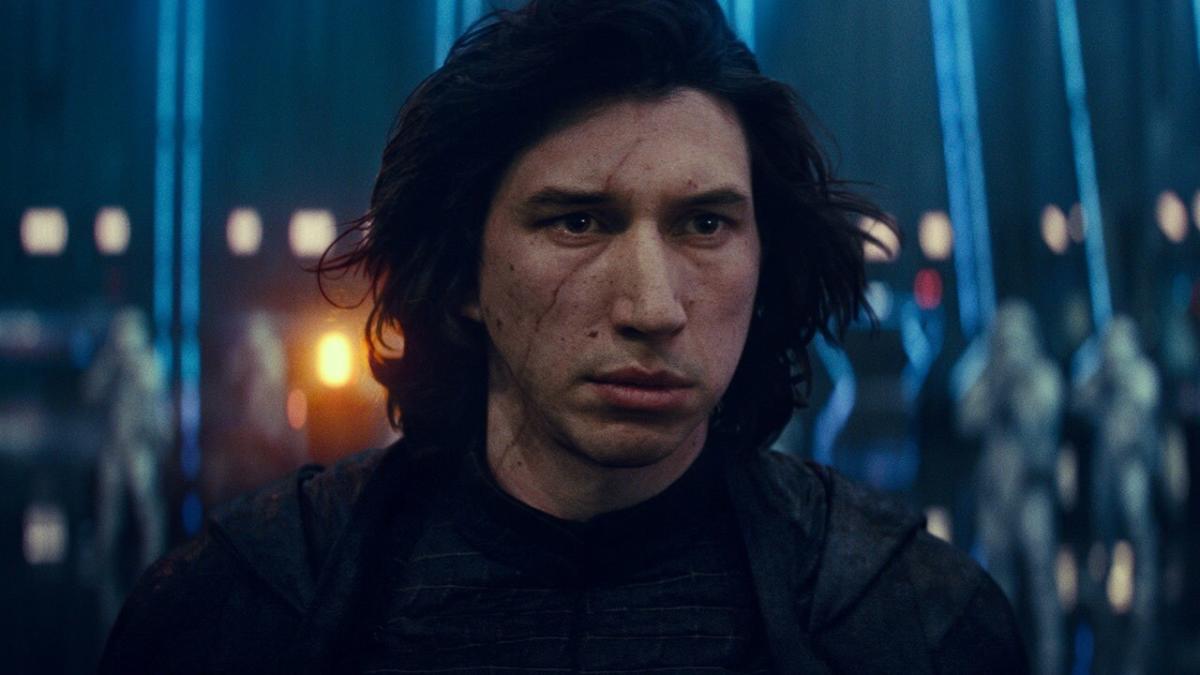
Adam Driver is undoubtedly one of the most talented and versatile actors in Hollywood today. His compelling performances in movies like Marriage Story and BlacKkKlansman resonate deeply with audiences. Yet, behind the acclaim and accolades lies a unique personal vow: Driver promised he wouldn’t watch himself in his films until he had the chance to do so alongside his Star Wars co-stars, Carrie Fisher and Daisy Ridley. This decision stems from a mixture of artistic integrity and the psychological burden of self-critique.
Driver’s reasoning for this vow is rooted in his background in theater, where actors don’t have the luxury of seeing their performances on screen. “Because I saw all the mistakes, the things that I wish I could change, but I can’t because it’s permanent,” he explained during an appearance on The Howard Stern Show. This candid admission reveals a significant aspect of an artist’s psyche: the fear of imperfection. Watching oneself on the big screen can often lead to overwhelming self-criticism where perfection is unattainable.
Indeed, many actors experience similar feelings. Keira Knightley has stated she only watches her films once, prioritizing her mental health over reliving performances. Similarly, Denzel Washington chooses not to revisit his past roles, expressing a desire to move forward rather than dwell on past performances. This trend among actors reveals a relatable understanding of the pressures they face – both on set and in the public eye.
Despite his commitment to avoid watching his own work, Driver eventually broke this vow for Star Wars: The Force Awakens. Sharing that memorable moment with Fisher and Ridley made the experience less daunting and more meaningful. “We did so much work on it afterwards… it kind of seemed like maybe I should just try getting over it,” he reflected. His vulnerability during this moment demonstrates the emotional weight that his role as Kylo Ren held for him.
Kylo Ren, a character defined by conflict, doubt, and a search for identity, allowed Driver to showcase his remarkable ability to convey complex emotions. His portrayal deviates from the typical "angry bad guy," instead emphasizing a character caught in a battle between light and dark. This depth allowed audiences to empathize with him, transforming Kylo Ren into an antihero rather than a one-dimensional villain. Driver’s challenges in portraying this inner turmoil reveal a duality: the actor’s internal struggles mirrored those of his character.
Interestingly, despite his vow being broken, Driver remains hesitant to continue watching his films. He stated simply, “You feel like you want to have control and that’s not really conducive maybe, to acting.” This thoughtful consideration reflects not only his commitment to the craft but also an understanding of its inherent challenges. The artistic process is not merely about performance; it’s also about relinquishing control over how a character is interpreted by others.
Though watching his work can bring about regret or criticism, Driver has begun to focus on the positive aspects of his performances instead. Changing his approach, he now defends his acting choices instead of criticizing them, embracing the idea that the final product is a collaborative effort with the filmmakers. This shift in perspective may help alleviate the mental burden that often accompanies the gift of artistic expression.
It’s essential to appreciate the emotional labor actors invest in their roles. For someone like Adam Driver, the experience is further complicated by his talent and the expectations that come with it. His vow to avoid watching himself is not just a quirky personal policy; it emphasizes a deeper struggle faced by many in the industry.
Ultimately, the fact that Star Wars: The Force Awakens served as an exception to Driver’s rule is significant. The opportunity to share that cinematic experience with Fisher and Ridley added a beautiful layer of nostalgia and camaraderie. This connection among actors likely helped alleviate some of the anxiety and self-doubt that could stem from rewatching one’s performances.
Although he still grapples with the decision to critique his work, Driver’s experience illustrates a fascinating aspect of the artistic journey. As he carves out his legacy in Hollywood, it’s clear that the character of Kylo Ren will leave a lasting imprint not only on fans but also on Driver himself. The weight of that portrayal continues to resonate, enriching his career and his development as an actor.
As Adam Driver navigates his path forward, one can only hope that he finds solace in the performances he delivers and the connections he builds along the way. While he may prefer to stay away from viewing his own films, the impact of his roles will undoubtedly continue to speak to audiences and serve as a testament to his extraordinary talent. In the world of cinema, where magic sometimes feels ephemeral, Driver’s journey underscores the enduring power of storytelling and the emotional challenges of an artist’s life.









